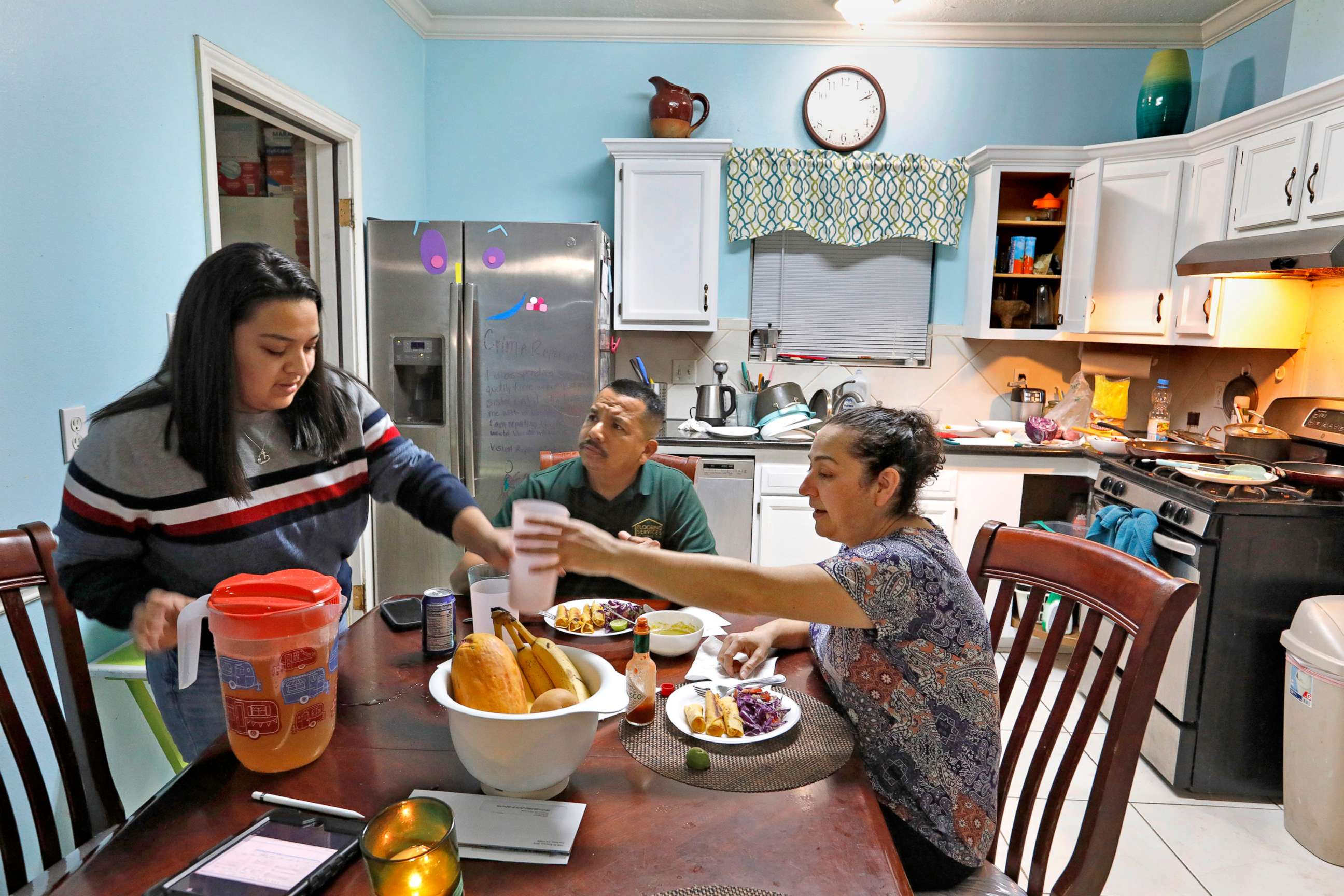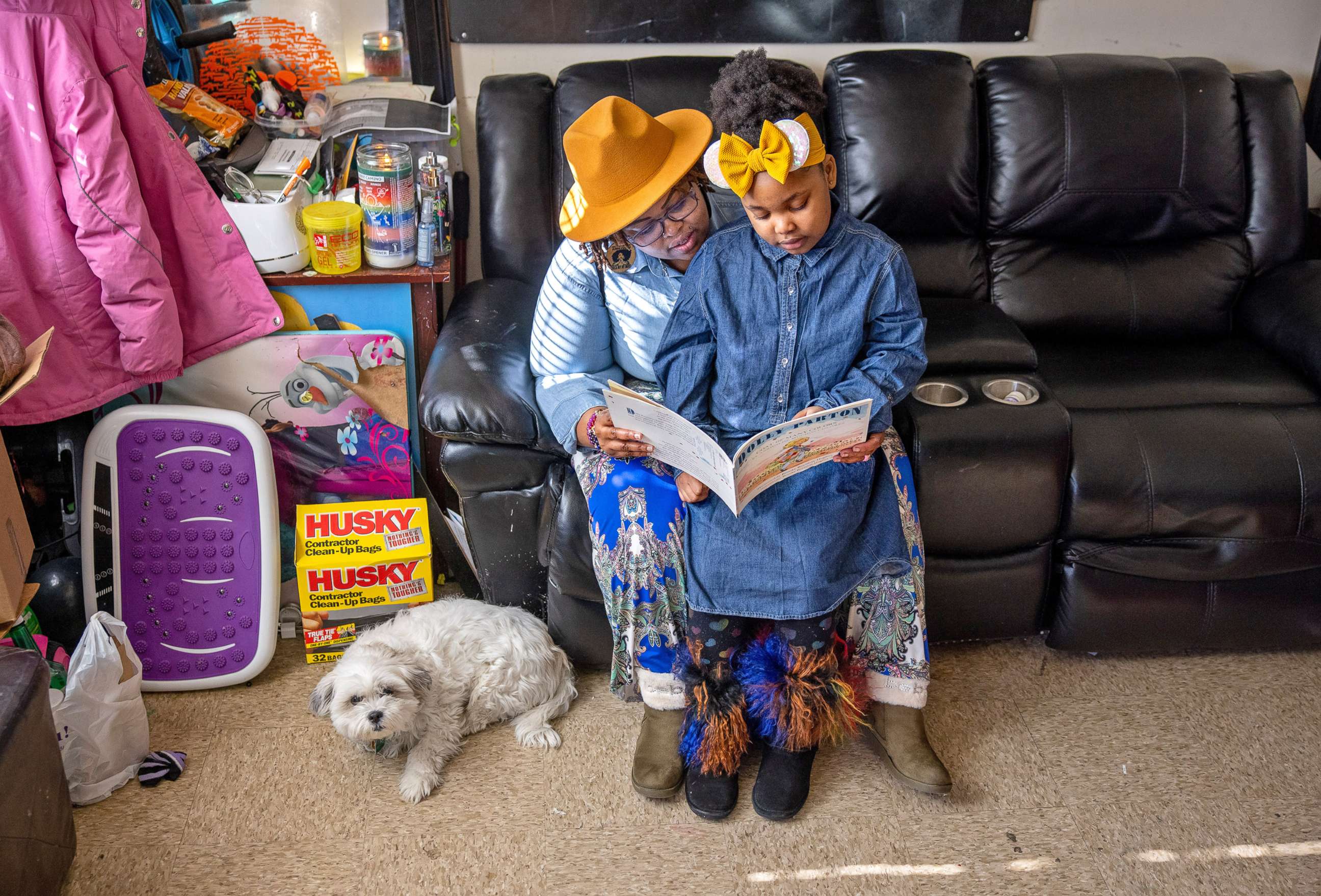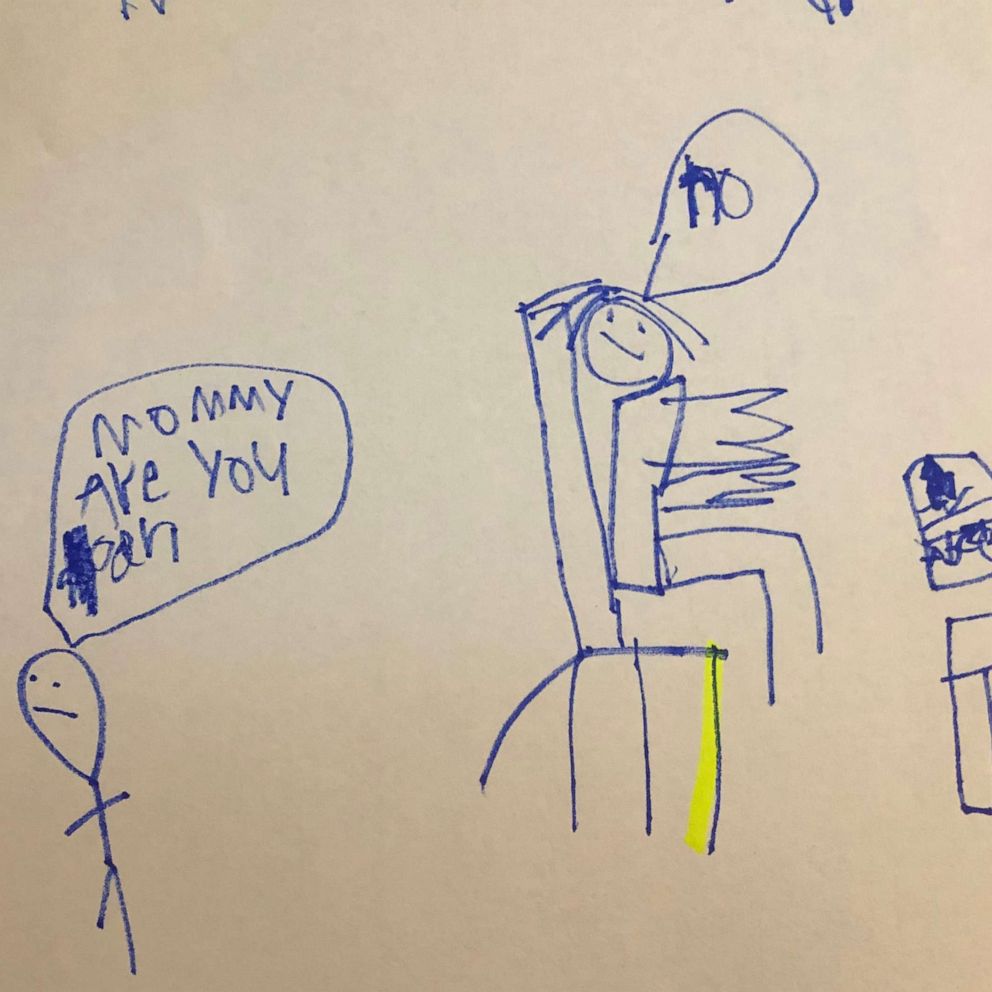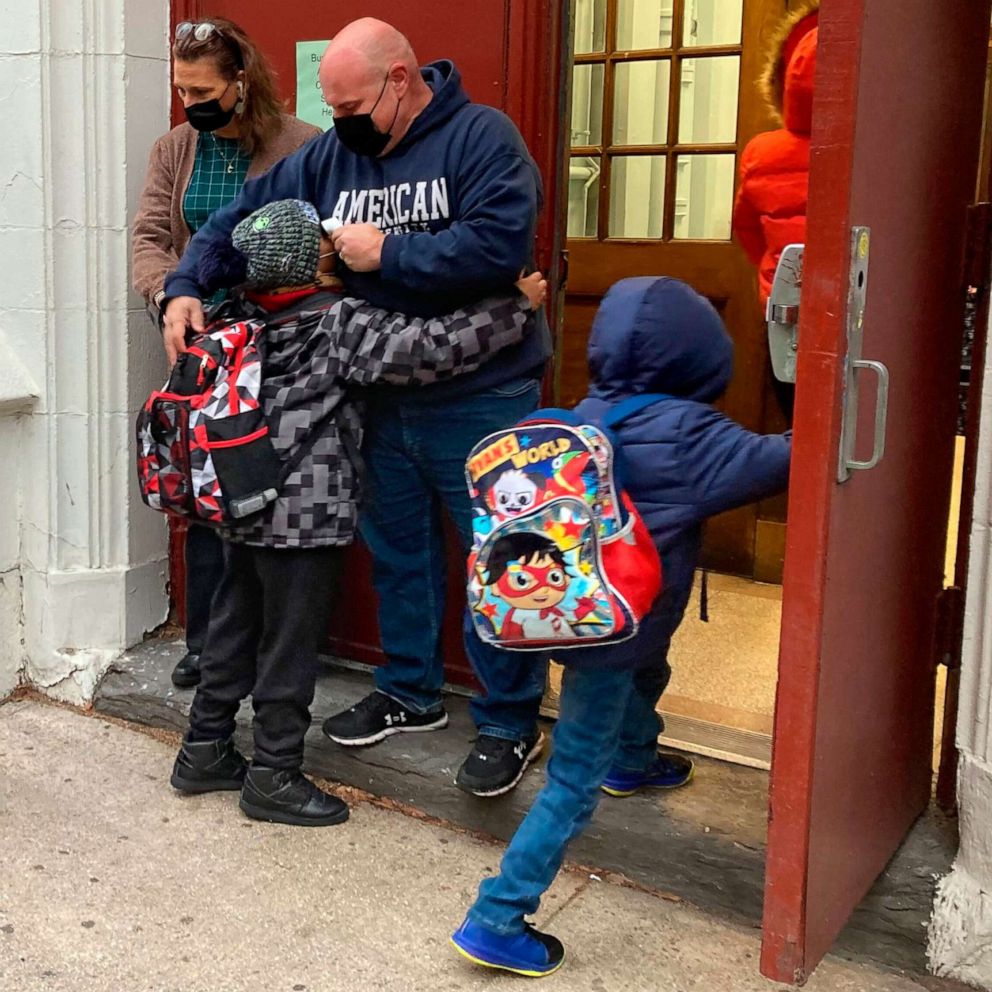Amid challenges of pandemic, new data finds a silver lining for parents
The Census Bureau found the pandemic brought some families together.
Despite the stress the ongoing coronavirus pandemic has brought to many families, there has been a silver lining for some, according to new data.
During the pandemic, parents have shared more weekly meals with children ages 17 and under and read to their children more often, according to the U.S. Census Bureau.
Using data from the 2020 Survey of Income and Program Participation, the Census Bureau found families spent the most extra time together in the spring and summer of 2020, at the start of the pandemic, when lockdowns were in place across the U.S.
With many parents working from and eating at home -- because they no longer had to commute or be present in an office -- shared meals became the most common type of parental involvement in 2020, according to the Census Bureau.
The proportion of shared meals between children and parents increased from 56% in 2018 to 63% in 2020.

Sixty-nine percent of parents reported reading to young children five or more times per week in 2020, compared with 65% in 2018, and 64% in 2019, according to the Census Bureau.
While many parents have understandably worried about how things like remote learning, mask wearing and missing playdates have affected their children, this new data showing family togetherness should be reassuring, according to Dr. Dipesh Navsaria, a pediatrician and associate professor of pediatrics and clinical associate professor of human development and family studies at the University of Wisconsin-Madison.
"One of the strongest things that we have to help counter the psychosocial challenges of the pandemic, and of life in general, is strong relationships," Navsaria told "Good Morning America." "Strong, supportive, nurturing relationships are really the cornerstone of what we look at when we wonder, even amidst of adversity of whatever type, what children's long-term life course looks like."
"So when I look at data like this and I see that families are spending time with one another connecting ... it tells us that families are reacting and responding to the pandemic in exactly the ways that the evidence backs up, which is to strengthen their bonds and their relationships with one another," he said.
Parents should feel reassured too, according to Navsaria, that building strong relationships with their kids can be simple and can take many forms, whether that happens through eating meals together or sharing books, taking walks, playing games or just asking questions and listening.

"They really can be as simple as sharing stories and active listening," said Navsaria, medical director of Reach Out and Read Wisconsin, an effort that helps families connect through books. "All of those things really send the message [to a child] that you matter and you matter in a way that I want to listen to you, and I want to spend time with you."
"That can be conveyed to a young infant just simply by looking and smiling and talking, and it can go all the way up to a teenager to say, 'Hey, what's on your mind? What have you been thinking about lately?'" he said. "Ask a really open-ended, nonjudgmental question like, 'Who do you spend time with in school when you have a chance? What do you think it is that makes spending time with them so fun?' and just listen."
When it comes to spending family time together, Navsaria said parents can focus on quality over quantity.
"If a family says that we're only able to achieve family meal time three times a week because of work schedules and family activities, OK great," he said. "If you can do that three times and it's a set expectation and everyone knows it's happening, it's better than 14 meals a week all together with everyone on their phones or distracted."
While the Census Bureau data found overall more togetherness among families during the pandemic, there was a fracture along socioeconomic lines, as is often the case, according to Navsaria, also a spokesperson for the American Academy of Pediatrics (AAP), which offers tips on its website for building family bonds.
Parents who are married and more educated, for example, tend to read more often to young children, according to the data.
Navsaria said to lessen that divide there needs to be more support in place for policies that support family relationships, adding, "It can be things like living wages and child tax credits. These are fundamentally relational policies."
Navsaria said parents who may not have the ability or the knowledge to build family relationships should be treated with curiosity rather than judgment in order to create solutions.
"That gets us to the point of saying, 'Great, now how can we fix that? How can we make places more welcoming? How can we bolster parenting confidence?" he said. "Because ultimately, all parents want these strong relationships that help their children, and give them a better long-term outcome."
Navsaria said his take-home message for families as the pandemic enters its third year is that, "Parents are good enough, they just need sometimes to be reminded of that, and they might need a little support or guidance in how much of a difference they make."
Speaking of activities like reading and eating together, he said, "It can be these seemingly simple, everyday things that are actually profoundly powerful, they are protective and they are really bolstering and have great evidence for how much of a difference they make long-term."






